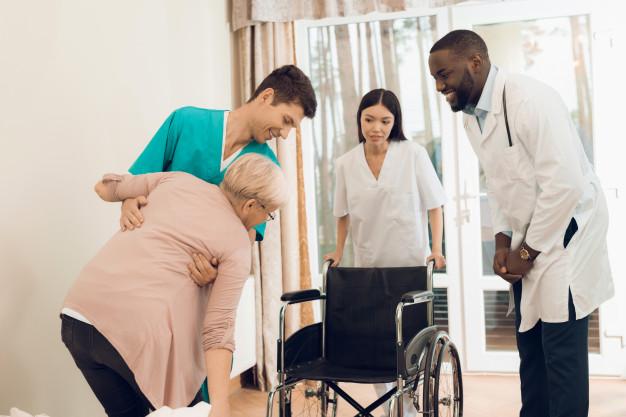
Medicaid helps pay for medically necessary nursing home care for a Medicaid eligible person in a nursing home or an intermediate care facility for those with intellectual disabilities.
Long Term Care Medicaid is for those 65 or older, blind or disabled individuals of any age or couples who have been in a hospital or nursing facility for 30 days or longer.
Medicaid beneficiaries must use their income to pay for nursing home care. Medicaid pays the difference between the recipient's income and the nursing home rate. The beneficiary keeps $30 per month for personal needs not provided by the nursing home. An additional amount may be set aside for a spouse living at home or for special needs such as health insurance premiums and charges not covered by Medicaid.
Requirements
- Income must be less than the cost of care in the facility at the Medicaid rate.
- Medicaid must approve the need for the level of care.
- Most of the individual’s income must be paid to the facility, to help pay for the cost of care. This is called the “patient monthly liability.” Medicaid will pay the rest to the facility.
- A spouse at home can keep all of the income he or she receives. They may also be able to receive some of the institutionalized spouse’s income as well.
- If an individual gives away assets or sells them for less than market value, he or she may be ineligible to receive Long Term Care Medicaid for a period of time. The sanction period is based upon the value of assets transferred out of the person’s name.
- When a Medicaid beneficiary receiving Long Term Care services dies, Medicaid seeks to recover certain expenses and there may be a claim filed against the estate. Estate Recovery is waived in certain circumstances.
Services Covered
- Room charge
- All general nursing, dietary, medical and psychiatric services
- Reusable items/equipment such as ice bags, canes, crutches, walkers and wheelchairs
- Personal items such as shampoo, combs, razor blades, soap and lotions
- Medical supplies such as diapers, bandages, dressings, aspirin and antacids
- Laundry services
- Hair trimming that is hygienic (there may be fees for permanents, hair coloring, or special styles)
- Special dietary supplements used for tube or oral feeding, such as a supplemental high-nitrogen diet
Wake County Health & Human Services does not monitor nursing homes or handle complaints about nursing home care. If you have any complaints about a facility, you may call the N.C. Division of Health Regulation at 919-844-4500 or the Long-Term Care Ombudsman at 1-800-310-9777.
